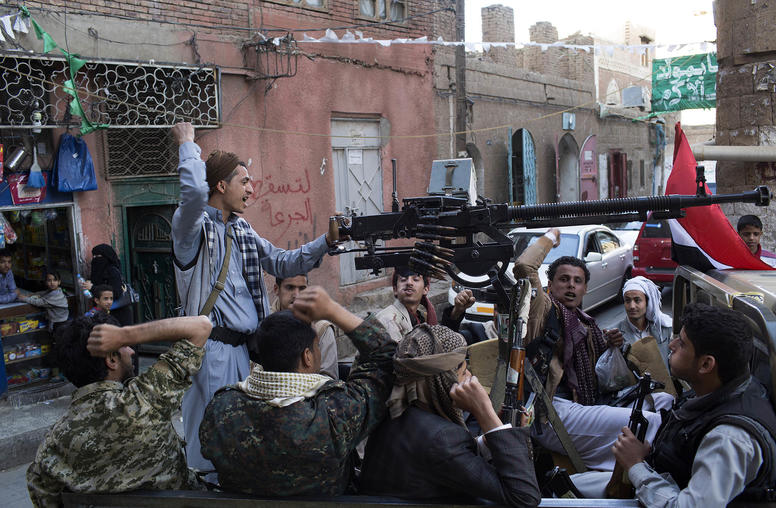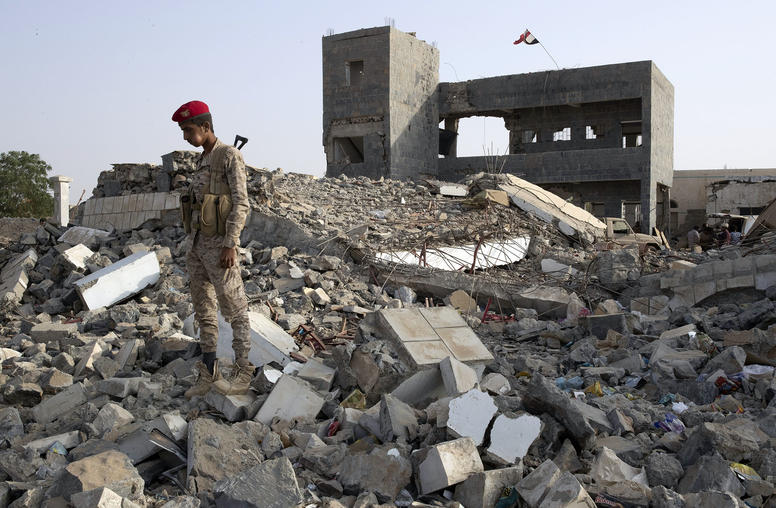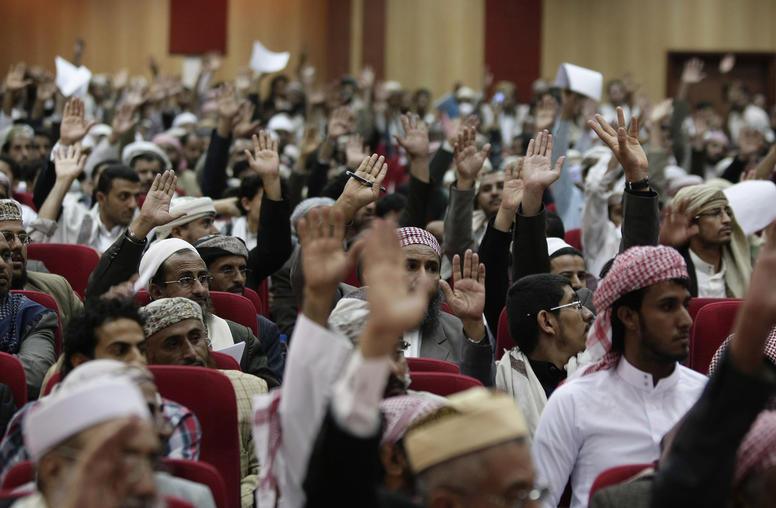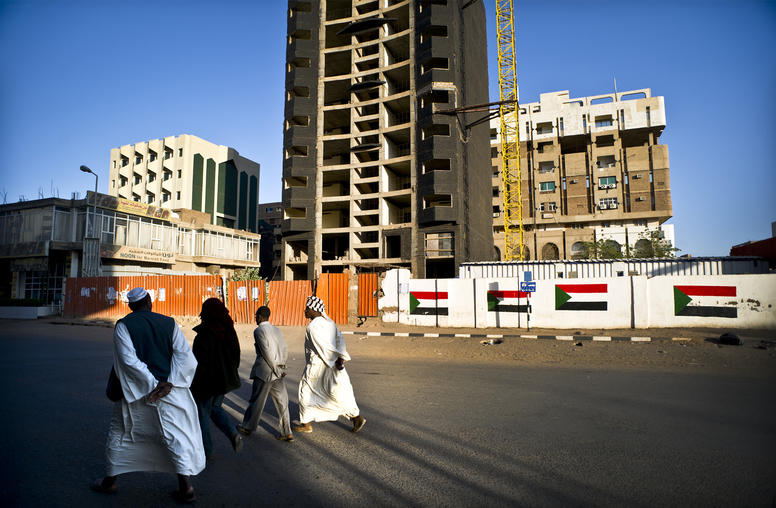USIP to Examine Yemen’s Tattered Justice Sector
Yemen is seeing some of its worst violence this year with at least three subsequent days of fighting this week between divided government forces, tribal groups and unarmed pro-democracy protesters, inching the country ever closer to full-blown civil war.
September 22, 2011
Yemen is seeing some of its worst violence this year with at least three subsequent days of fighting this week between divided government forces, tribal groups and unarmed pro-democracy protesters, inching the country ever closer to full-blown civil war.
Many Yemenis have attempted to seize the momentum of the recent Arab uprisings and force change at the top but have so far been unable to topple the government of President Ali Abdullah Saleh, who has vowed to step aside but hasn’t yet done so. That has created divisions within his own forces and the outcome remains hugely uncertain.
Despite some violent flare-ups, Yemen had been relatively quiet for many months. But as demonstrators see the impact that popular uprisings have had in other Arab countries, reformers have become more assertive.
More than 60 people have been killed since Sept. 18, when fighting erupted between government forces and protesters. The airport in Yemen’s capital city of Sanaa was closed, according to reports, “in another ominous sign of unraveling,” as The New York Times put it Sept. 20.
"The way things were escalating, we were afraid of an outcome like this,” says USIP’s Colette Rausch, director of rule of law. “We hope that the specter of violence can be pulled back and that all sides can resolve things peacefully. But once violence starts it’s very difficult to take a step back.”
Rausch and others from USIP are planning a trip to Sanaa this fall to work with civil society, justice and security sector actors and government officials to help map out potential changes to the security and justice landscape that would aim to be responsive and fair to the needs of all citizens. Critical to this will be to determine how Yemen’s eight-month old uprising has changed the security and justice sectors.
The trip will also help determine how and where USIP’s resources and expertise can best be applied. Rausch will help assess how best to apply USIP’s resources and expertise to Yemen’s rule of law problems. For example, convening disparate individuals, from civil society to tribal leaders and government officials, and getting them to talk to one another and build consensus on how to repair broken security and justice systems, could go a long way to bridging some of the divides this year’s instability exposed as well as created.
But there are myriad challenges in a country with tribal battles, ongoing violence, frustration with the government, as well as humanitarian issues stemming from a lack of water and jobs.
Amid the Arab uprisings, President Saleh had agreed to step aside to allow a national unity government to be created. But he has since reneged on the agreement a few times, leaving in doubt whether Yemen would join other Arab countries in reform or if its pro-democracy wave would stay sidelined. Saleh himself, injured in an attack earlier this year, is recuperating in Saudi Arabia.
“While it is not possible to draw a direct line from President Saleh to the renewal of violence in Sanaa, it is hard to avoid the conclusion that his supporters remain determined to thwart efforts to remove Saleh from power,” says USIP’s Steven Heydemann. Read Heydemann’s full political update.
If the president finally agrees to leave office, the power vacuum will likely pose serious security and political problems. On top of that, al-Qaida has established a beachhead in Yemen from which attacks against U.S. and U.S. interests have originated. The key for USIP and others is to try to find where key actors – such as civil society, youth groups, tribal leaders and government officials -- can engage one another in constructive dialogue and make changes to strengthen justice and security, thus preventing further violence and bloodshed, and build upon common values and aspiration.
“Looking at all this from a peacebuilding standpoint is that the longer it goes on, violence begets violence,” Rausch says. “Sometimes you can’t pull these back.”
Rausch says the focus of USIP’s work there will be to bring together different factions, from protesters to government officials, and help hammer out a vision for what a new “operating system” could look like, and then get input from the bottom up.
Rausch says USIP isn’t naïve about the challenges. But convening stakeholders to build consensus, even on a small aspect of the security and justice needs within the country, can have impact. “Going in with a very targeted, strategic approach and focus on an area where you can make a difference,” she says.
At the same time, outsiders must understand the limits of what they can do, as well as the complexities of the environment, the cultural taboos and the relationships each faction has with one another to be effective. Ultimately, in the end, it will be the Yemenis who can make this happen. “The Yemenis are perfectly capable of doing this themselves,” she says. “There’s an opportunity for that.”
Explore Further
- Yemen Teeters on Brink of Civil War...Again
News Feature by Steven Heydemann | September 22, 2011 - Countries and Regions: Yemen
- Justice and Security Dialogue: A New Tool for Peacebuilders
On the Issues by Colette Rausch | June 22, 2011 - Justice and Security Dialogue in Nepal: A New Approach to Sustainable Dialogue
Building Peace by Nigel Quinney | June 2011



